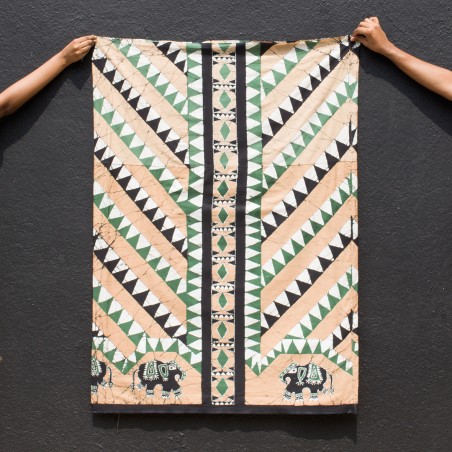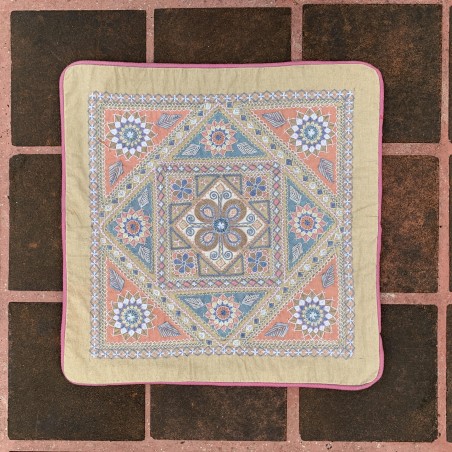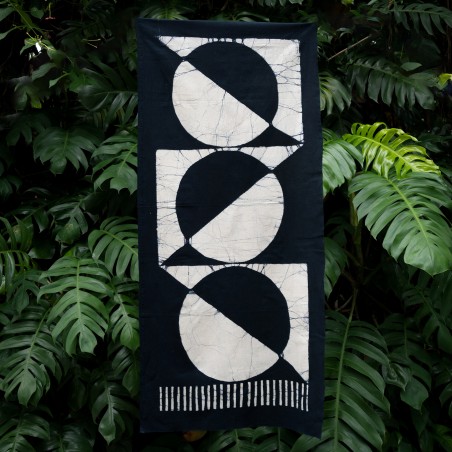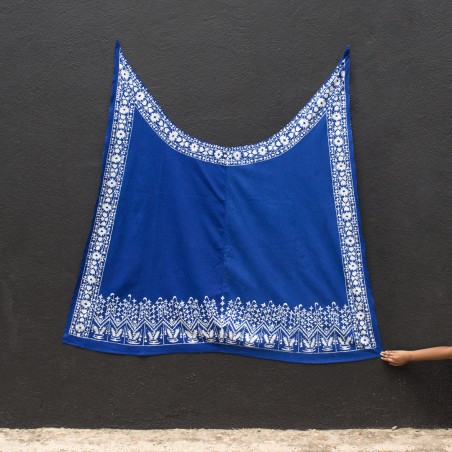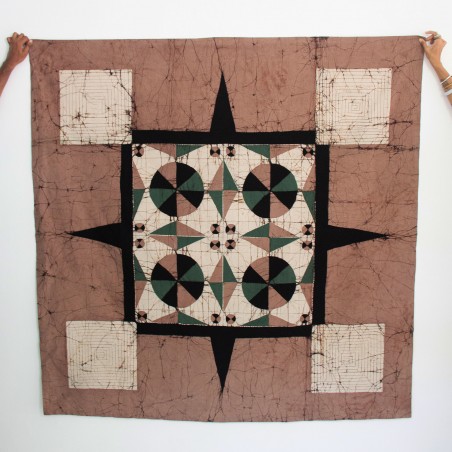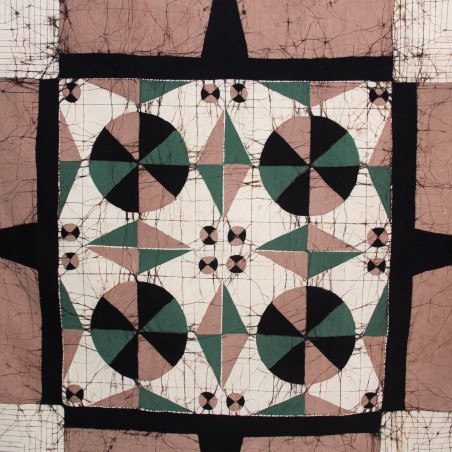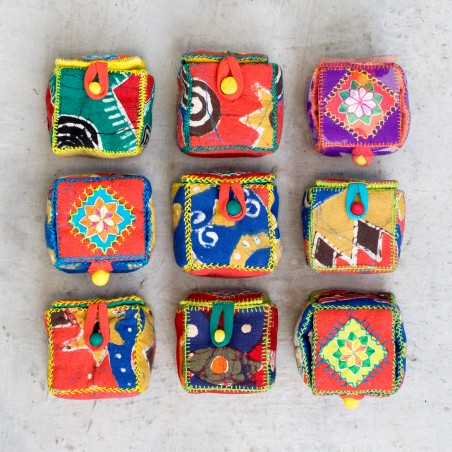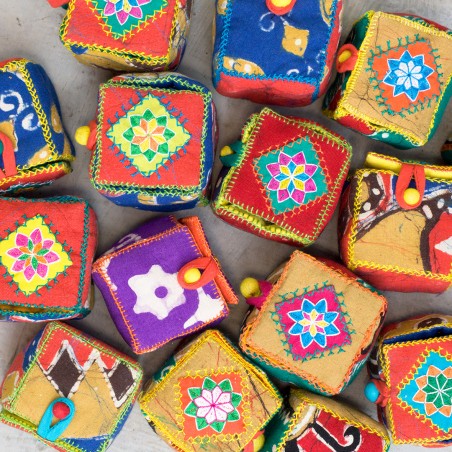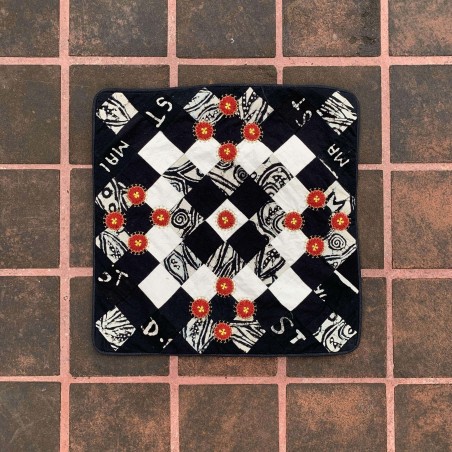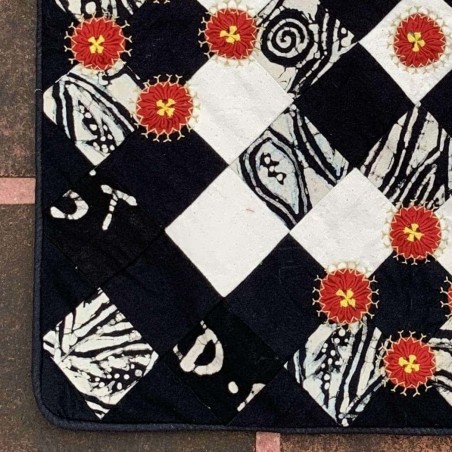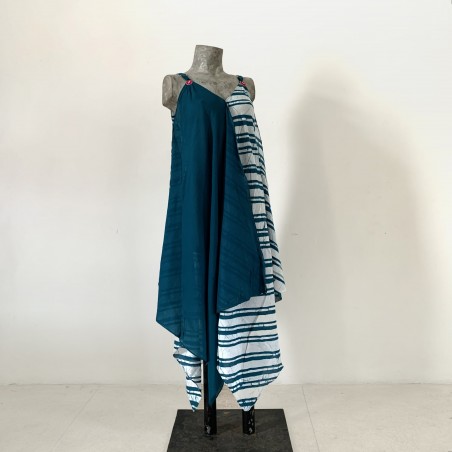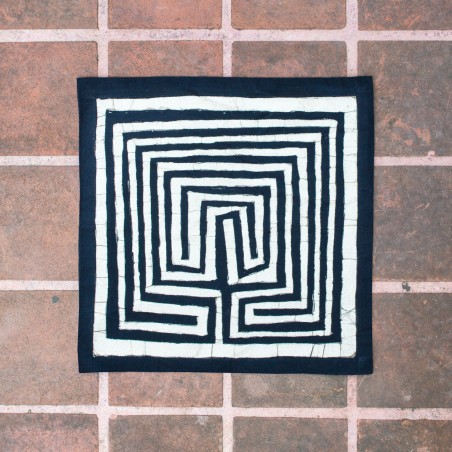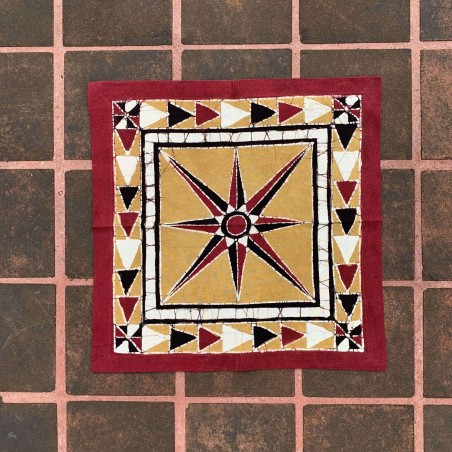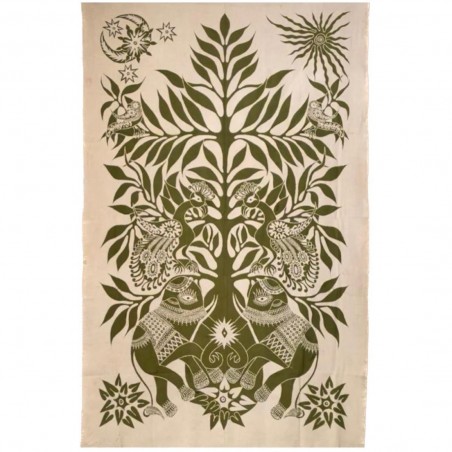A 'pavement sale' in 1961, under the porch of Ena de Silva's house on Alfred Place is where it all began. She designed many of the fabrics along with her son Anil Gamini Jayasuriya and Laki Senanayake working from the courtyard and studio of her house. Overwhelming demand allowed Ena de Silva to open a shop in Colpetty selling cloth, clothing, and soft furnishings with workshops in Kotte and the suburbs.
Starting from the magnificent ceiling panels at the Bentota Beach Hotel and banners for the Lanka Oberoi her work would travel and be commissioned to adorn venues internationally. Some of the work for these projects was done in the garden of her father's house, in Matale, where she later established the craft cooperative that came to be known as the Matale Heritage Centre - reviving traditional skills of wood carving and brass-casting in addition to batik and embroidery. and were constantly collaborating with architects and designers.
The key feature of the various establishments run by Ena de Silva was that they mostly employed women from the neighbourhood and it fitted into a strong belief around empowering women to be self reliant. After her passing in 2015, the name of the workshop was changed to the Aluwihare Heritage Centre to honour her family and village name and to start on a new chapter in its long history.
Text Courtesy of Channa Daswatte

